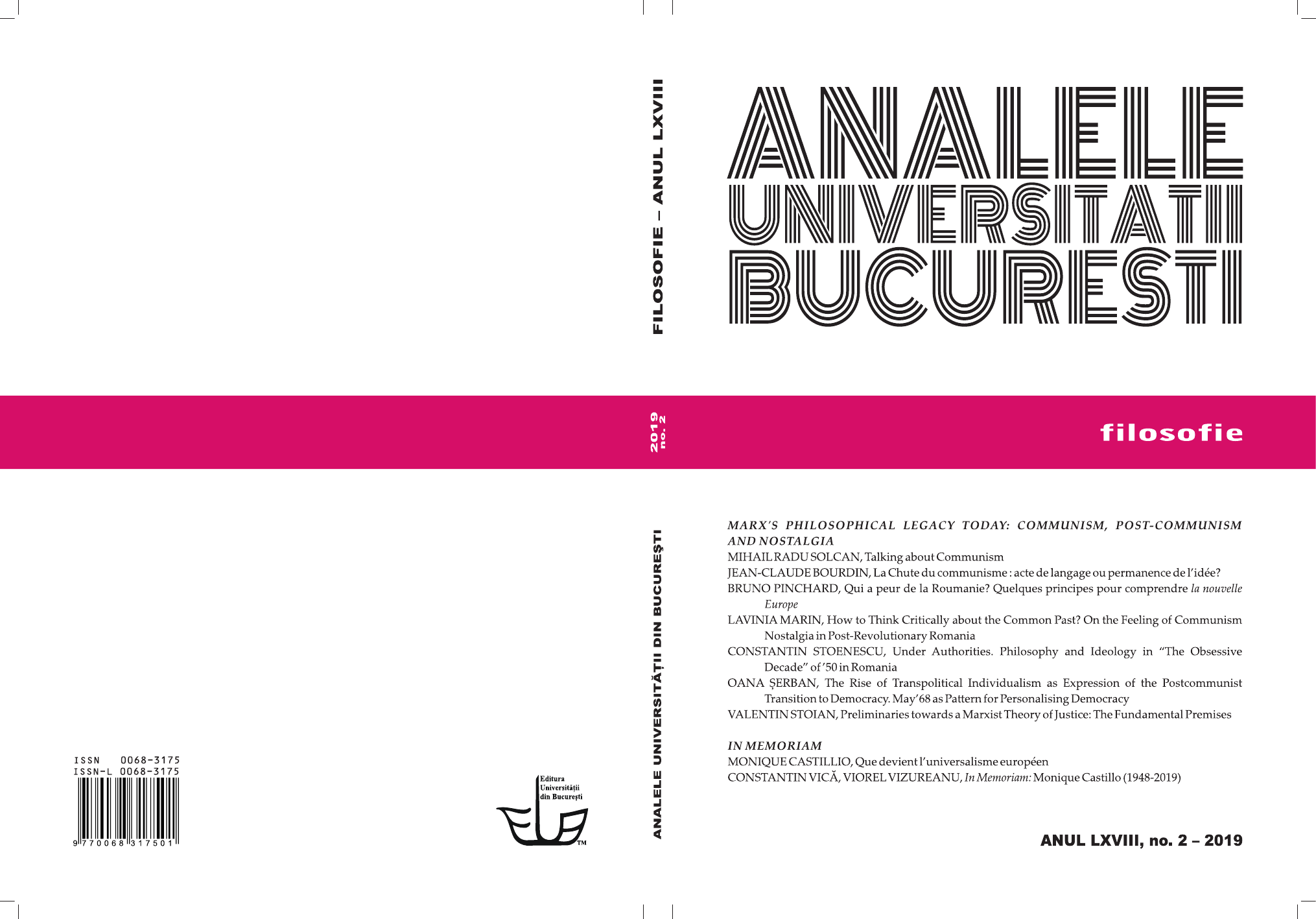The Rise of Transpolitical Individualism as Expression of the Postcommunist Transition to Democracy. May ’68 as Pattern for Personalising Democracy
The Rise of Transpolitical Individualism as Expression of the Postcommunist Transition to Democracy. May ’68 as Pattern for Personalising Democracy
Author(s): Oana ŞerbanSubject(s): Philosophy, History of Philosophy, Political Philosophy
Published by: Editura Universităţii din Bucureşti
Keywords: individualism;democracy;postcommunist;Lipovetsky;
Summary/Abstract: The aim of this paper is to examine and define the transpolitical individualism as expression of the postcommunist transition to democracy, based on the analysis that Gilles Lipovetsky devoted to the French revolution of May’68. This historical moment has been regarded not only as a powerful instrument to achieve the so-called privatization of postwar lifestyle, enhancing a new perspective on the public and civil perception of authority, in the manner suggested by Alain Touraine, but also as the beginning of a new democratic age. At the core of my paper lies the correspondent analysis between the three elements of the process of power transition – disciplinary, revolutionary and conventional practices, and the types of individualism identified by Lipovetsky. My hypothesis is that to each element of the political order disciplinerevolution-convention, corresponds a certain form of individualism from the three recognised by the French philosopher responsible, hedonist and narcissistic individualism. Such forms of individualism are conceived as paradigms that shape and personalise the democratic culture, at the end of which the ideology of the transpolitical individualism rises. Transpolitical individualism suggests, in fact, a product of the historical transitionfrom one regime of power to another and the source of our contemporary consumerist society. The last part of my research will be focused on analysing two possible consequences of accepting transpolitical individualism as expression of the transition’s process. I will argue that May’68 experiences democracy as a continuity of a certain perception of autonomy from modernism to postmodernism. Inspired by this assumption, I will criticize Luc Ferry’s argument that the French manifestations can be tracked as a rebellion of individuals against norms, that lead, through the hyperbolic affirmation of individuality, the destruction of the classical notion of the Subject.
Journal: Analele Universității din București – Seria Filosofie
- Issue Year: 68/2019
- Issue No: 2
- Page Range: 87-104
- Page Count: 17
- Language: English

